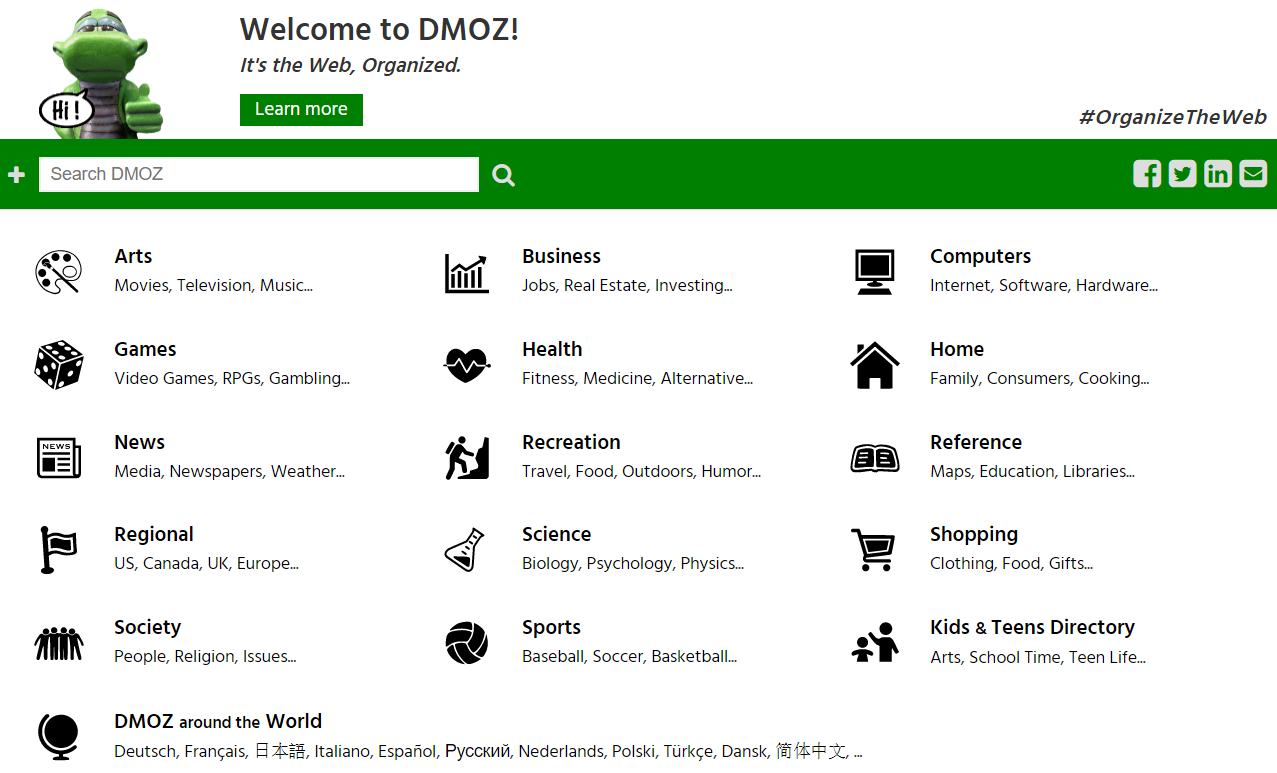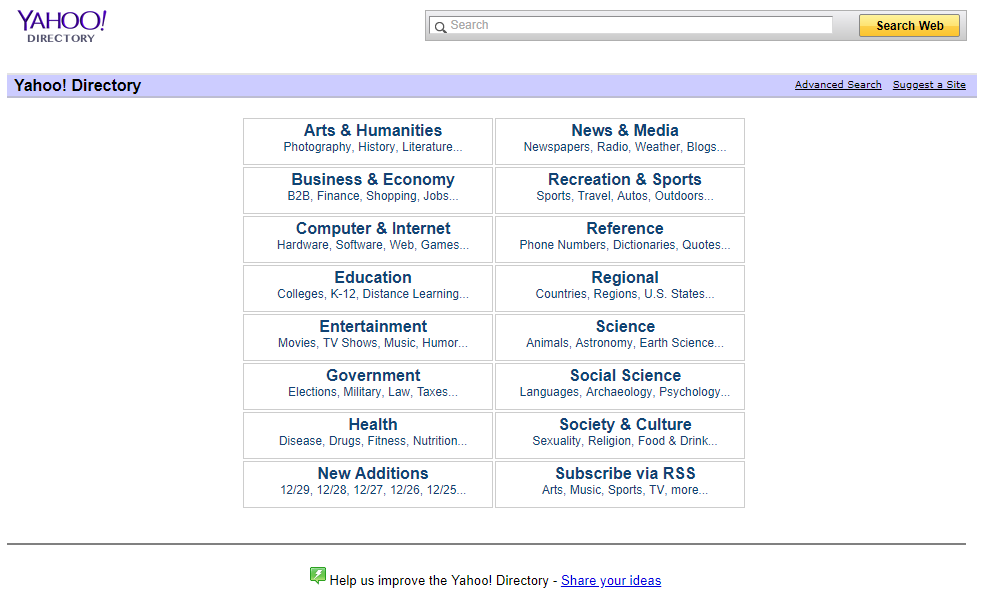Noodp and noydir are tags that are often found in the code on websites.
Here’s what they stand for:
- Noodp = No Open Directory Project
- Noydir = No Yahoo Directory
Put simply, noodp and noydir are instructions to search engines not to use information from these web directories when showing your site in the search results.
The Open Directory Project and Yahoo Directory used to be massive online directories that contained links to websites along with their titles and descriptions.
However, these web directories don’t exist anymore. The Yahoo Directory was shut down in 2014 and the Open Directory Project (also called DMOZ) was shut down in 2017.
For this reason, these meta tags do not serve any purpose anymore, even though many websites still use them.
Noodp and noydir are meta robots tags
Noodp and noydir are meta tags that are added to the html code of pages.
Meta robots tags are code that is hidden from your site’s visitors but provides some instructions to search engine bots.
Noodp looks like this:
<meta name="robots" content="noodp" />Noydir looks like this:
<meta name="robots" content="noydir" />When both are used, it looks like this:
<meta name="robots" content="noodp, noydir" />Sometimes, other meta robots tags may be listed as well:
<meta name="robots" content="index, follow, noodp, noydir" />When search engines crawl your website and see noodp and noydir inside the code, they will not use your directory listings to show information about your website.
Bottom Line: Meta robots tags are code that provides instructions to search engines, but are not shown on your site when rendered in a web browser.
How noodp and noydir (used to) work
Back in the day, search engines used to sometimes rely on web directories to display information about websites.
The two biggest and most comprehensive web directories were The Open Directory Project and the Yahoo Directory.
Instead of using information directly from websites, search engines would sometimes use the titles and descriptions from the directories when displaying the search results:

The noodp and noydir meta robots tag were used to tell search engines not to use the titles and descriptions from the directories.
These tags did not prevent sites from being shown in search engines. They also did not prevent sites from being listed in the web directories.
They only instructed search engines not to show the web directory’s information as your site’s title or description in search.
When this tag was present, search engines would instead be forced to use your own web page to find a title and description.
This was actually preferred by many website owners since they could then easily control the titles and descriptions themselves by changing them on their sites.
Bottom Line: Search engines sometimes used information from web directories when deciding what title and description to show for websites in the search results. Noodp and noydir prevented this from happening.
The Open Directory Project (DMOZ)

The Open Directory Project, also called DMOZ, was started in 1998 and closed down in 2017.
It was an open directory of links to websites, along with their titles and descriptions.
Back in the early days of the internet, web directories used to be a popular way to organize websites into different topics.
A lot of people used them to find the content that they were looking for.
However, web directories don’t really serve much of a purpose anymore, partly because search engines are much smarter these days.
For this reason, The Open Directory Project was shut down in 2017 even though part of the website is still live at dmoz-odp.org.
Google confirmed that it had stopped supporting the noodp directive in 2017 since it didn’t serve any purpose anymore.
The noodp tag doesn’t have any relevance for search engine optimization anymore. If your site has it, then you can go ahead and remove it.
Bottom Line: The Open Directory Project (DMOZ) was a web directory with links to various different websites, organized into groups. It was shut down in 2017.
The Yahoo directory

The Yahoo directory was a web directory that listed different websites, grouped into categories.
Early versions of the Yahoo search engine used the directory to discover websites until they switched to using web crawlers.
The Yahoo directory was started in 1994 but shut down in 2014.
For this reason, the noydir tag doesn’t serve any SEO purpose anymore and can be removed.
Bottom Line: The Yahoo directory was a massive web directory owned by Yahoo. It was used by early versions of the Yahoo search engine.
Conclusion
Noodp and noydir are not used by search engines anymore and don’t serve any SEO purpose.
They don’t have any negative effects, but they don’t have any positive effects either. They are simply ignored by Google and other search engines.
If you see them inside the code on your site, then you are welcome to remove them.